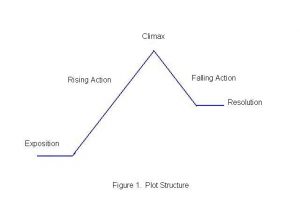John Oliver: The Best Interviewer of All Time (or just really funny)
If you can, look past the incredibly awkward excitement that a segment about our entire country was featured on American TV and watch one of the greatest interviewers currently popularized (in my opinion).
John Oliver is an incredibly influential media producer. Originally a comedian, he got his big break working on The Daily Show with Jon Stewart. From there, he was able to start his own late night talk show, Last Week Tonight, which deals with different news stories and political/economic issues in America. His segments on Last Week Tonight have been credited in changing court rulings, legislation, and regulations in the US, a effect known as ‘The John Oliver Effect’. His show has caused surges in donations to charities mentioned (such as The Society of Women Engineers) and clips from his show go viral often, with his Donald Drumpf segment reaching 85 million views within a month, the highest in HBO’s history. This success is owed in no small part to his ability to interview, and weave those interviews into stories.
The above segment about gun control in the US vs in Australia was incredibly popular when it came out in 2013. Oliver was able to use his interview skills to get the soundbite ‘whoop-de-doo’ from the ‘villain’ of the piece, Philip van Cleave, in response to Australia’s gun violence declining significantly as a direct result of gun control. Towards the end of the interview, Oliver was even able to get van Cleave to accidentally agree with Oliver’s argument.
This style of confrontational, bias interview was made incredibly popular by The Daily Show with John Stewart. Oliver was not the only one who enacted change via his interviews. Aasif Mandvi, another correspondent on the show, performed an interview with Don Yelton about voter ID laws. During this interview, Don Yelton made many blatantly racist statements, and this interview resulted in his resignation.
John Oliver, however, has been one of the most successful of The Daily Show’s correspondents, alongside Stephen Colbert, Samantha Bee and Trevor Noah. As mentioned previously, his show has been incredibly influential and a great part of this is attested to his ability to interview, and who he is willing to interview,sometimes without the permission of HBO. One such interview took place in Russia with controversial whistle-blower, Edward Snowden, about government surveillance. Oliver used his skills as an interviewer to both get Snowden to admit that turning over the NSA documents without reading them all was a mistake, and explain to the viewers what different factions of the NSA do by putting it in terms the audience would understand.
(Interview starts at 13:30)
In today’s society, news can be incredibly difficult to understand. As we are being constantly bombarded with information through social media, television, radio, and printed news sources, it can be difficult to understand the root of an issue, or even what the issue is. John Oliver is, in my opinion, one of the greatest interviewers of all time as he is able to take an interviewee’s words and spin it into a digestible story that can be understood by everyone. He is also unafraid of taking a hard stance with even the kindest man on Earth, the Dalai Lama, about the issues surrounding his reincarnation and what his death could mean for the Tibetan people.
Overall, he gets his point across in interviews. He knows his audience, and how to help the general public understand what someone is saying, and he is not afraid to press his interviewees to get answers to difficult questions.
